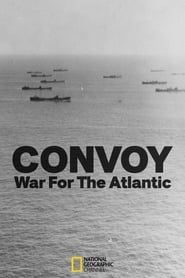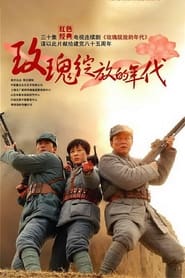War Politics TV Series - Page 62
-
零下三十八度
2013
零下三十八度
2013
-
Outlaws of the Marsh
1982
-
Battle of the Atlantic
2002
star 6.9Explores the desperate struggle for survival on a hostile ocean during the longest and bloodiest battle of the Second World War. -
八女投江
2015
八女投江
2015
-
Convoy: War Of The Atlantic
2009
star 8The story of the Convoys is a tale of compelling drama, full of bravery and tragedy. It takes us into the lives of hundreds of thousands of unheralded men whose incredible everyday courage, played out in the cruel seas and cold skies of the North Atlantic changed the course of the war. -
天阵
2010
天阵
2010
-
1941
2009
-
Trzecia granica
1976
-
Time of Evil
2021
Time of Evil
2021
star 3.7Bogdan Dragović has returned from emigration, trying, for the sake of his son Vladimir, to re-establish ties with the Communist Party from which he was expelled as a Trotskyist. -
Codename: Kyril
1988
Codename: Kyril
1988
star 5During the Cold War, a secret operative is dispatched to ferret out a suspected double agent within the KGB. -
The Empire Files
2015
The Empire Files
2015
star 8From inside history's biggest empire, host Abby Martin records a world shaped by war & inequality, and explores the U.S. Empire, its rise to world hegemony and its impact on people and the planet. -
Rakshak India's Braves
2024
star 10A saga based on real-life events of the patriots who dedicated their lives to protect India. It is a testimony to the courage, commitment, and the spirit of every Rakshak towards their country and its citizens. -
Attack on Leningrad
2007
Attack on Leningrad
2007
star 5.5When in 1941 Nazi Germany invaded the Soviet Union, their troops quickly besieged Leningrad. Foreign journalists are evacuated but one of them, Kate Davies, is presumed dead and misses the plane. Alone in the city she is helped by Nina Tsvetnova a young and idealist police officer and together they will fight for their own survival and the survival of the people in the besieged Leningrad. -
狼烟
2013
狼烟
2013
-
World War II: Total War
2018
star 6.5A Total War is all encompassing, a war without boundary or limitation. It is a war of material and morale. A war that mobilizes, destroys and displaces civilian populations. The Second World War was a war in which massive armies advanced, confronting whole populations with impossible choices. The manufacture of weapons transformed industry and the workforce; area bombing campaigns reduced cities to rubble; sieges doomed populations to starvation; racial policies sponsored campaigns of genocide. Told through archive footage and expert interviews, we learn how WWII shattered the boundaries between home-front and battlefield. -
VE Day 80
2025
VE Day 80
2025
star 7Eighty years on from the announcement that brought joy and relief to the nation, join in with moments of remembrance from across the UK to pay tribute to the heroes of the past. -
Either Freedom or Death
2020
star 8.8On March 16, 1920, after the Allied Powers invaded Istanbul and disbanded Meclis-i Mebûsan, the Kuvayi Milliye movement, led by Mustafa Kemal Pasha, and the opening adventure of the fully independent assembly to be established in Ankara are described. -
雪鹰
2014
雪鹰
2014



















